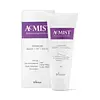What's inside
What's inside
 Key Ingredients
Key Ingredients

 Benefits
Benefits

 Concerns
Concerns

No concerns
 Ingredients Side-by-side
Ingredients Side-by-side

Water
Skin ConditioningCaprylic/Capric Triglyceride
MaskingMyristyl Myristate
EmollientEthylhexyl Stearate
EmollientCetearyl Alcohol
EmollientPropanediol
SolventCetearyl Ethylhexanoate
EmollientC14-22 Alcohols
Emulsion StabilisingMangifera Indica Seed Butter
Skin ConditioningArachidyl Alcohol
EmollientC12-20 Alkyl Glucoside
EmulsifyingBehenyl Alcohol
EmollientOctyldodecanol
EmollientSqualane
EmollientArachidyl Glucoside
EmulsifyingDimethicone
EmollientSaccharide Isomerate
HumectantPanthenol
Skin ConditioningTocopheryl Acetate
AntioxidantCeramide AP
Skin ConditioningSodium Hyaluronate
HumectantSodium Hyaluronate Crosspolymer
HumectantBorago Officinalis Seed Oil
EmollientSimmondsia Chinensis Seed Oil
EmollientPhenoxyethanol
PreservativeAllantoin
Skin ConditioningPotassium Cetyl Phosphate
EmulsifyingCarbomer
Emulsion StabilisingTriethanolamine
BufferingEthylhexylglycerin
Skin ConditioningParfum
MaskingWater, Caprylic/Capric Triglyceride, Myristyl Myristate, Ethylhexyl Stearate, Cetearyl Alcohol, Propanediol, Cetearyl Ethylhexanoate, C14-22 Alcohols, Mangifera Indica Seed Butter, Arachidyl Alcohol, C12-20 Alkyl Glucoside, Behenyl Alcohol, Octyldodecanol, Squalane, Arachidyl Glucoside, Dimethicone, Saccharide Isomerate, Panthenol, Tocopheryl Acetate, Ceramide AP, Sodium Hyaluronate, Sodium Hyaluronate Crosspolymer, Borago Officinalis Seed Oil, Simmondsia Chinensis Seed Oil, Phenoxyethanol, Allantoin, Potassium Cetyl Phosphate, Carbomer, Triethanolamine, Ethylhexylglycerin, Parfum
Ingredients Explained
These ingredients are found in both products.
Ingredients higher up in an ingredient list are typically present in a larger amount.
Behenyl Alcohol is a type of fatty alcohol (these are different from the drying, solvent alcohols).
Fatty Alcohols have hydrating properties and are most often used as an emollient or to thicken a product. They are usually derived from natural fats and oils; behenyl alcohol is derived from the fats of vegetable oils.
Emollients help keep your skin soft and hydrated by creating a film that traps moisture in.
In 2000, Behenyl Alcohol was approved by the US as medicine to reduce the duration of cold sores.
Learn more about Behenyl AlcoholEthylhexylglycerin (we can't pronounce this either) is commonly used as a preservative and skin softener. It is derived from glyceryl.
You might see Ethylhexylglycerin often paired with other preservatives such as phenoxyethanol. Ethylhexylglycerin has been found to increase the effectiveness of these other preservatives.
Phenoxyethanol is a preservative that has germicide, antimicrobial, and aromatic properties. Studies show that phenoxyethanol can prevent microbial growth. By itself, it has a scent that is similar to that of a rose.
It's often used in formulations along with Caprylyl Glycol to preserve the shelf life of products.
Propanediol is an all-star ingredient. It softens, hydrates, and smooths the skin.
It’s often used to:
Propanediol is not likely to cause sensitivity and considered safe to use. It is derived from corn or petroleum with a clear color and no scent.
Learn more about PropanediolSqualane is an emollient that helps the skin hold onto moisture. It's an oily liquid that occurs naturally in certain types of fish and plant oils.
Because squalane boosts hydration in the skin, it also comes with plenty of benefits: it is an antioxidant and can help fight free radicals and skin damage. Squalane is also found to have a detoxifying effect when applied.
Squalane comes from squalene, which occurs naturally within the sebum of our skin. It is one of the oils our skin produces to keep itself hydrated. Squalane is the hydrogenated version of squalene and has a longer shelf life.
Research shows that squalane is non-irritating (even at 100% concentration).
In general, it's a fantastic ingredient. It does a great job at hydrating the skin, and it's suitable for those with sensitive skin.
The source of squalane may impact malassezia / fungal acne. This is because olive oil derived squalane can contain impurities such as fatty acids and plant waxes. Sugarcane derived squalane is recommended for anyone with malassezia concerns.
Is squalane vegan?
This depends on the source. Squalane can be derived from both plants and animals. Most squalane used in skincare comes from plants.
Please note: the source of squalane is only known if disclosed by the brand. We recommend reaching out to the brand if you have any questions about their squalane.
Read more about squalene with an "e".
Is squalane an oil?
Squalane is often called an oil, but it’s technically not; it’s a hydrocarbon, meaning it’s only made of carbon and hydrogen, unlike true oils which are triglycerides made of fatty acids and glycerol.
The term “oil-free” isn’t regulated, so companies can define it however they want. Some exclude all oils, while others just avoid mineral oil or comedogenic oils.
While some people avoid oils thinking they cause breakouts, the right kind of oil (or oil-like ingredient like squalane) can actually help balance and hydrate your skin. It’s worth testing out simple oils or squalane to see what works best for your skin.
Learn more about SqualaneTocopheryl Acetate is AKA Vitamin E. It is an antioxidant and protects your skin from free radicals. Free radicals damage the skin by breaking down collagen.
One study found using Tocopheryl Acetate with Vitamin C decreased the number of sunburned cells.
Tocopheryl Acetate is commonly found in both skincare and dietary supplements.
Learn more about Tocopheryl Acetate